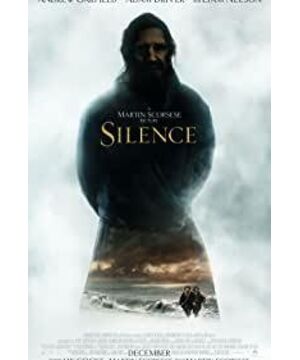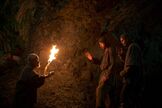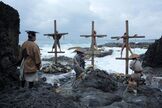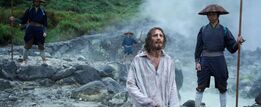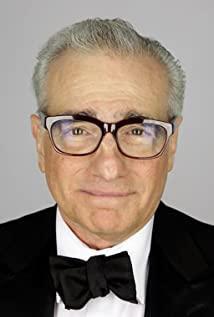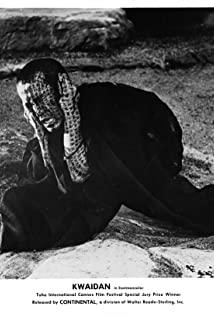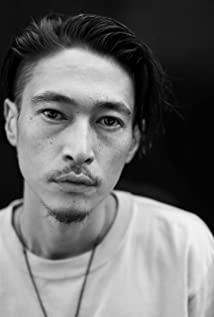The failure of the awards season does not mean that there is a problem with the quality of the film. On the contrary, in my opinion, "Silence" is a rare high-level religious film in recent years. It also maintains good scores on many rating websites, but In terms of commentary, it is very similar to the "Last Temptation of Christ" filmed by him earlier and shows a trend of polarization. Some Asian commentators even gave a low score of 1 point. However, the difference is the Pope of Rome and many religious figures. After watching, Martin's efforts were recognized. Compared with the hidden religious film, which can be interpreted from multiple angles of multiple genres, "Hacksaw Ridge", "Silence" has a straightforward and in-depth discussion on religious issues, and the Japanese morality shrouded by the smoke of history. The Sichuan shogunate era also lengthened the sense of distance from the public.
"Silence" is adapted from the novel of the same name by the famous Japanese writer Shusaku Endo. As a Catholic, the author shows the confusion in the book, and almost everyone who believes in Christianity or any religion will be deeply trapped in it. Just as the name of the novel is "silence", it is the silence of God. The reason why religion was born and accompanied by the development of human society and continues to play an important role is not only because of human beings' obscure interpretation of the unknown, but also because of human beings' questioning of their own human nature, "suffering". It is often the core power that drives those elements. Religious belief can give mankind spiritual strength with the supreme sense of belonging when suffering comes, and transform it into solid action.
However, on the other hand, "suffering" is also one of the reasons for the transformation of many theists. This problem is particularly prominent in China, which is extremely inclined to pragmatism. When you encounter misfortune, when you encounter confusion, or even when you are framed and persecuted, what has the God you prayed for has done for you? Even a little miracle, facing those believers who wailed in pain until they lost their lives, why did he remain silent? Does "he" exist, do you care about us? This is the confusion encountered by the protagonist of the film, the priest Rodrigues played by Andrew Garfield, and the shake in his heart in the extremely cruel environment. This is not a new question. In the Garden of Gethsemane, Pilate’s Mansion, and Golgotha where Jesus walked to the cross step by step, I believe everyone present has had such questions, even Jesus himself. .
-"O Lord, why are you standing far away?" (Psalm 10:1)
Father Garupe, played by Rodrigues and Adam Driver, learned of his former mentor, Father Ferreira, played by Liam Nissen, who disappeared during his mission in Japan. A large number of Catholics were brutally persecuted, and the missionaries who were forced to abandon their religion even more. It's more wicked than good. Faced with this extremely dangerous situation of xenophobia and seclusion, the two priests volunteered to go to Japan to find the whereabouts of Father Ferreira. However, what they encountered in Japan was unprecedented extremes, the cruelest persecution and the most tenacious faith. The arrival of the two priests seemed to have saved the believers, and those confessions seemed to allow the two priests to find the true meaning of their existence. They brought hope and faith to the people.
There is an interesting detail in the film that shows the piety of Japanese believers, which paved the way for Rodrigues' entanglement afterwards. The two priests sneaked into Japan secretly, and they encountered unprecedented hard conditions. However, the believers who had no food in the day gave food to the two priests first. Just when the priest had hurriedly delivered the food to his mouth, he was embarrassed to find that the believers were praying devoutly. A small detail has already highlighted this kind of piety. This is not only the strict requirements of Catholicism for the form of religion, but also the place that religion occupies in the lives of these suffering people, especially in a country like Japan that believes more in spiritual power. .
But due to the prevalence of the Japanese Inquisition, these pious people quickly lost their lives in front of Rodrigues. The person in charge of the ruling only requires the believer to step on the board with the image of Jesus to be released. Inoue, played by Ogata Kazunari, is a scheming and long-sighted person. He has a deeper understanding of the relationship between Catholicism and Japan. He does not mean to kill Japanese believers, but to let them betray their beliefs with their bodies, even if some People choose to endure the suffering, and he doesn't care. However, with such a chance to compromise, Rodrigues also witnessed the rejection and sacrifice of many people.
Such a firm will led him to the first level of experience, and what followed was a religious dilemma. Rodrigues's path of search in the film is divided into three stages (the standard mode of seriously shaping characters), and the adherence to pure Catholicism is the first layer. Before he realized the complexity of this land, he still had an idealistic understanding of Catholicism itself and his identity as a priest. However, Inoue saw through all this. The killing itself will only fuel and shape religion. In order to suppress the basic bottom line of a religion that must be fundamentally destroyed, he passed the death of those believers and the martyrdom of Father Garupe onto Rodrigues' shoulders. Like an invisible cross, such a weight made him question him, and the famous Epicurean paradox began to eat into the priest's heart.
If God wants to stop "evil" and cannot stop it, then God is incompetent;
if God can stop "evil" and does not want to stop it, then God is bad;
if God neither wants to prevent nor can't stop "evil", Then God is both incompetent and bad;
if God wants to prevent and prevent "evil", then why is our world full of "evil"?
The film does not take into account the commercial duration and the seemingly soothing rhythm that is not procrastinated in the content. All have left enough time for Rodrigues' psychological changes. When life continues to disappear under our eyes, that bleak land has no There was a sad soundtrack, but it was only the cicadas screaming at night, the slap of the waves and the howling sea breeze. Everything in the Martin film seemed to tell the silence of God like Rodrigues. He originally wanted to save the people who were in distress, but he caused more and more people to encounter misfortune. This was the most painful torment he faced in the second stage. Father Garupe, who was more "orthodox" in the debate about ritual and life, did not make it.
According to the paradox, the god here must be a personality god, he has his own likes and dislikes and the criteria for judging the world. All beings in the world are in suffering, and only with "sin" can "atonement". Therefore, the evil of the world is inseparable from human beings. If God wants to create a perfect world, human beings will no longer exist. There is no pain and sorrow in the Catholic paradise. The ultimate goal of Buddhism is to escape from reincarnation, but as John Milton mentioned in "On Press Freedom", the twin brothers of good and evil are inseparable. With evil, people will understand what good is. If there is no process of struggling to find salvation in the human world, the world of bliss will never be reached, because this makes it fundamentally lose the meaning of existence.
What's more, this so-called "evil" often has a strong human subjective color. The salvation brought by God is to enable people to find their way in a turbid world. It is a way to get salvation, rather than sending you directly to heaven. "The salvation of faith" is the sure way to eliminate evil in the Bible. As for direction and choice, after all, it is man’s free will, which will be damaged by God’s intervention. From the perspective of "Silence", it is his silence that proves the existence of God. The “sarcasm” of Jesus saving everyone but not saving himself is the core of this great love, and it is also the key thinking of Rodrigues to untie his knot and understand his teacher. Only when you truly experience this pain can you fully realize it. In this way, Rodrigues' silence for the rest of his life and his teacher's silence were not a kind of asceticism. They can betray everyone, but they didn't betray the Lord, until they finally cremated according to Buddhism, that deep hidden cross could still take him to heaven. (Otherwise why Christianity is not called "Worship God"? 23333333)
"Christ did not die
for beautiful and good things " "It is easy to die for beautiful and good things, but difficult for miserable and corrupt things." of"
The shaping of Rodrigues in "Silence" is the same as "Hacksaw Ridge", showing the transformation from personality to god. There is indeed the shadow of Jesus himself on him, just like the reflection of Jesus in the water. Coincidentally, although Yoshijiro had silver and betrayed Rodrigues, his corresponding Judas was not the traditional Judas. Instead, he moved a little closer to "The Last Temptation of Christ" because of repentance and the final ending. The change in my heart also rested on the understanding of Jesus' sacrifice. The scene when many Japanese people threw rotten vegetable leaves at him echoed the scene of Jesus being reprimanded by opponents. When he stepped on the board engraved with Jesus, the nail of the third stage was also driven into the cross made up of contradictions behind him.
The roles played by Garfield in "Blood Battle in Hacksaw Ridge" and "Silence" are very different in setting, but they have the same effect in the mapping and inner development of the characters. The Pope even joked with Martin that it was time to confer the priesthood on Garfield. The difference is that for religious elements, "The Silence" is obviously deeper, and Garfield's interpretation of the characters also relies more on inner strength. But this main line is not all about religion in the film.
"The Silence" also explores the behavior of preaching itself. The dissatisfaction of the Asian film critics mentioned earlier lies in the Western religious superiority in the film, which expresses the naked "universal values" with "truth", and this "universal" is based on the representation of Japan. The Eastern countries and the depreciation of foreign cultures such as Buddhism. From my personal point of view, although these views are somewhat reasonable, for example, they completely ignore the local religions and cultures such as Buddhism that have taken root in the "mud", but they are still a bit too extreme. However, film critics who hold this view are not just a small group of people. After all, "The Silence" is not a large-scale religious documentary. No matter how deep it is, it is ultimately a personal understanding of religion. The deeper the difference, the greater the difference. It is inevitable. I don't know if it is this kind of controversy that ruined the journey of the awards season of "The Silence".
The story of "The Silence" is centuries apart from ours, but the current lack of faith is as serious as the persecution suffered by those believers in those days. "Blood Fight Hacksaw Ridge" is still acceptable because we can put aside religion and regard it as a universal "belief". Although I tend to read it more religiously, at the time, Summer The point of view also makes perfect sense. But this point can only go to the first stage in "The Silence".
The remaining part also involves the problems encountered in cross-cultural communication. Religion, as an important part of culture, will inevitably be affected by heterogeneous cultures and mutate in the process of dissemination, just like Buddhism experienced when it spread from India to China. The Catholicism in "The Silence" obviously deviates from Rodrigues's original ideals. Compared with the doctrine itself, the people's crazy desire for crosses, rosaries and other objects can't help but make people wonder what they are looking for. This extreme worship of objects has begun to contradict the teachings of Catholicism. If you look at the Catholic Church in Japan from an idealistic perspective, the result will never be satisfactory.
Although he has strong photography, if he does not have the most basic common sense or interest in religious issues, it takes some courage to challenge the 159-minute "Silence". The most important thing is to let go of the arrogance and prejudice that atheists tend to ignore on their own.
-------------------------------------------------- -------------------------
If you are interested in my articles and my friends, you can follow our public account "Grape Trough Movie" (Funnygrape) Oh! ~!
View more about Silence reviews


